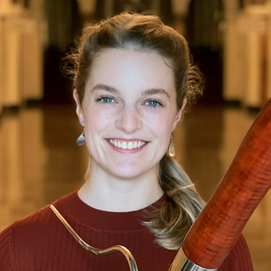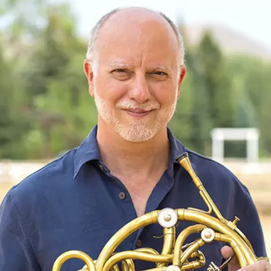Program
This concert is proudly sponsored by Ariel Premium Supply, Inc., and is an exclusive private event dedicated to the residents of Mason Pointe Independent Living.
Claude Debussy: En bateau (Arr. for Clarinet Trio by Robert Walker)
Jacques Ibert: Cinq pièces en trio for Oboe, Clarinet, and Bassoon
I. Allegro vivo
II. Andantino
III. Allegro assai
IV. Andante
V. Allegro quasi marziale
Ludwig van Beethoven: Trio in B-flat major, Op. 11 (Arr. for Clarinet and Bass Clarinet)
III. Theme and Variations (Pria ch’io l’impegno: Allegretto)
György Ligeti: Six Bagatelles for Woodwind Quintet
I. Allegro con spirito
II. Rubato. Lamentoso
III. Allegro grazioso
IV. Presto ruvido
V. Adagio. Mesto -- Belá Bartók in memoriam
VI. Molto vivace. Capriccioso
Michael Curtis: Pink Flamingo Tango for clarinet and bass clarinet
Valarie Coleman: Tzigane
Jacques Ibert: Cinq pièces en trio for Oboe, Clarinet, and Bassoon
I. Allegro vivo
II. Andantino
III. Allegro assai
IV. Andante
V. Allegro quasi marziale
Ludwig van Beethoven: Trio in B-flat major, Op. 11 (Arr. for Clarinet and Bass Clarinet)
III. Theme and Variations (Pria ch’io l’impegno: Allegretto)
György Ligeti: Six Bagatelles for Woodwind Quintet
I. Allegro con spirito
II. Rubato. Lamentoso
III. Allegro grazioso
IV. Presto ruvido
V. Adagio. Mesto -- Belá Bartók in memoriam
VI. Molto vivace. Capriccioso
Michael Curtis: Pink Flamingo Tango for clarinet and bass clarinet
Valarie Coleman: Tzigane
Regrettably, the scheduled pianist was compelled to withdraw from the performance at the eleventh hour due to an unforeseen hand injury, necessitating a revision of the program.







